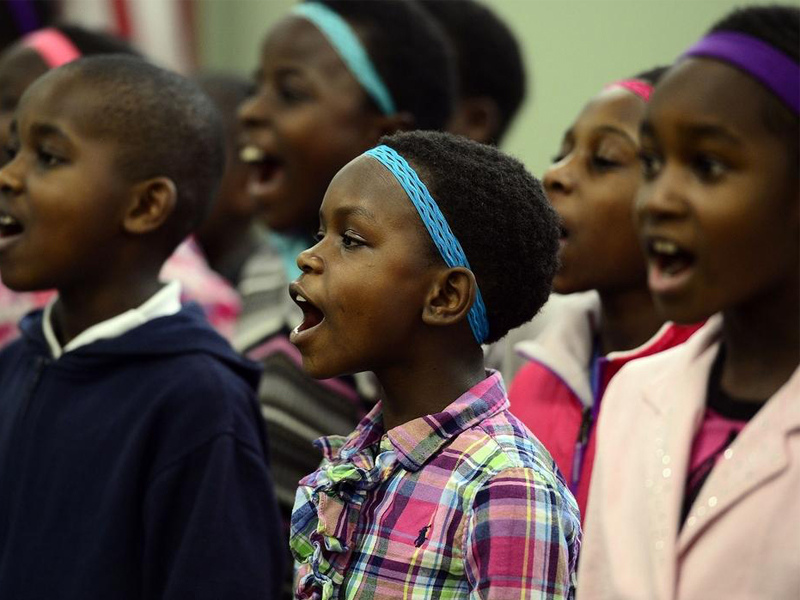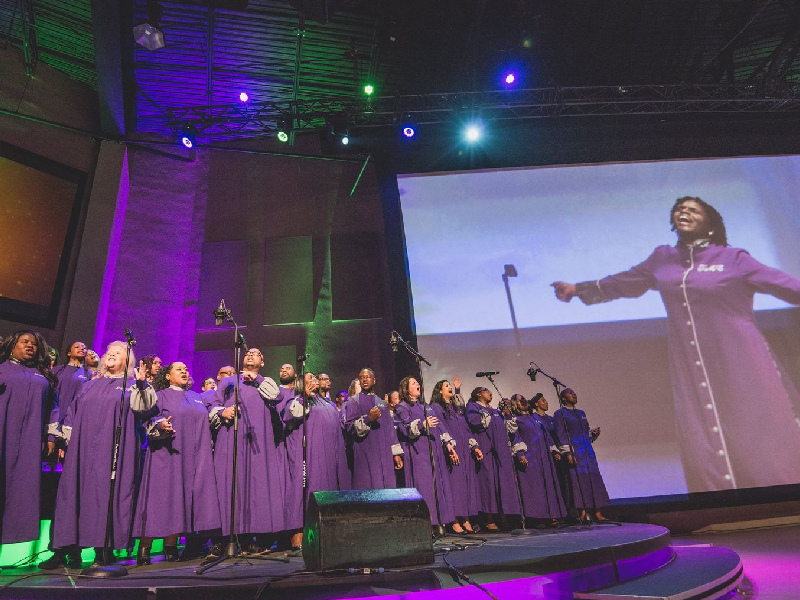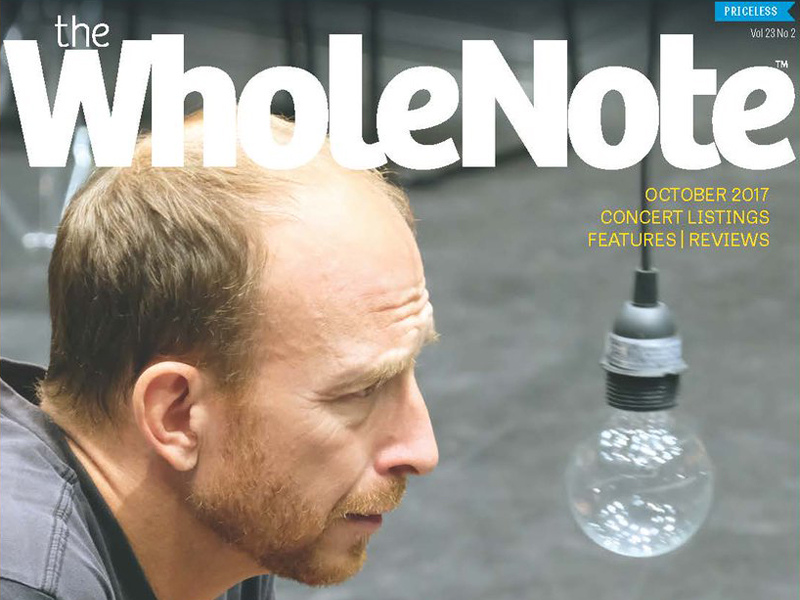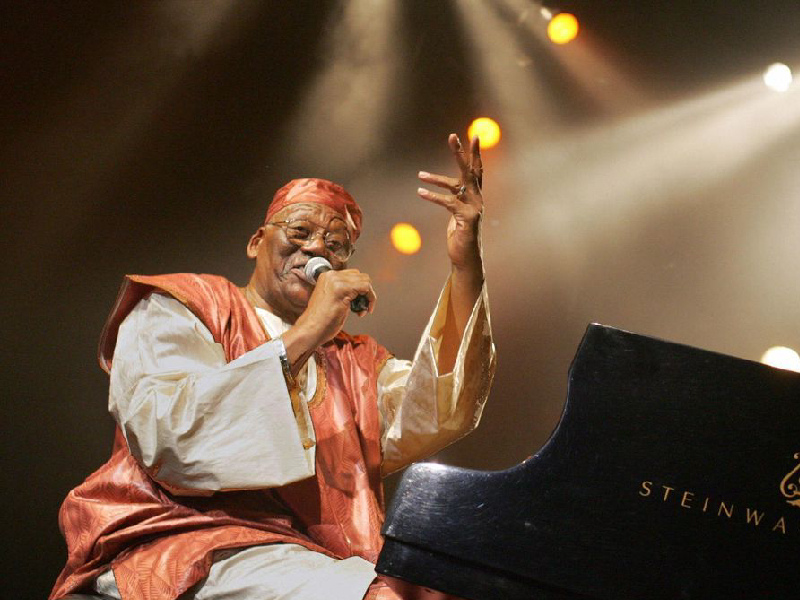|
By Karen Burke Take a look at any GTA high school band or choir and, for the most part, you will not see a representation of what Toronto’s population looks like. Toronto is by far the most diverse city in North America and probably the entire world according to ‘The Globe and Mail’ (April 2018). As such, the music being taught in our schools and celebrated in our communities should reflect our population, but it often does not. Among the many ethnic groups that make up the population of Canada, are those from the African diaspora in three distinct categories: new immigrants primarily from the African continent, first or second-generation Canadians descended from abroad and lastly, multi-generational Black Canadians; a description used to describe Black Canadians like myself with, “a considerably longer historical presence in Canada and different cultural background than those of West Indian or Caribbean origin.” (Smith et al, 2005, 349) It’s important to stress the fact that music matters. While the benefits of music and music-making on the whole are widely accepted, economic and cultural barriers continue to stymie inclusion and representation in Canadian arts academies and institutions. Schools and churches have traditionally been the access points for music training and musical presentations. However, at the same time, as we have seen music instruction time and resources for music programmes diminish in our schools, there has also been a decline in the number of churches that offer traditional weekly choir experiences. This is in favour of smaller and less inclusive worship teams. Community music programmes often help to bridge the gap between the ‘haves and the have nots’ and level the playing field, particularly in marginalized communities. These programmes often offer a broader selection of genres at a variety of levels, but one must participate to fully realize the benefits. The ‘Blue Pages’, ‘WholeNote’ magazine’s annual directory of concert presenters listed in October 2017, listed 148 profiles described as, “…a snapshot of the musical diversity present in the GTA and southern Ontario”. But outside of those very few ensembles whose mandate it is to perform unique cultural repertoire, it would be difficult to identify exactly what is so diverse about the music and the music-makers that are listed. Much of the repertoire being covered in these ensembles is Western art music and, from my own observations as a clinician, adjudicator and educator who regularly travels to concerts, festivals and music conferences across Canada, participants from visible minorities are very under-represented. Jazz, Gospel and other popular forms of fundamentally Afro-centric music are not readily accessible to the average Canadian consumer. Black Canadians must recognize the importance of sharing our stories through the music that we make and insist, while fully participating, that Canadian society does more than play lip service to the music of the African diaspora. Based on the very fractured nature of our becoming, the African diaspora is splintered and not as homogenous as other cultures that have made Canada their home. Wherever we originally landed, our arrival was often a ‘forced one’ and our identity was stripped away, including our names and use of our own language. Communication through music was not for entertainment, but literally for survival. Which came first--our lack of participation or our lack of representation in the Canadian music scene? Perhaps it is both. What I do know is that we must teach, encourage and lead by example if we are to motivate this next generation of Black Canadians to allow their untapped music potential to flourish. Moreover, for the members of the African Diaspora, it is important that we do not give up our musical voice. Wyatt Tee Walker’s term ‘African survival’ (Walker, 1979, p. 22) is a descriptor of any elements remaining from the middle passage. Music is an ‘African survival’ that gave us a sense of hope and helped to create community where there was none. In jazz pianist, Randy Weston’s auto-biography, “African Rhythms”, he declares that when people say to him: “Man, what you’re doing is fantastic,” he says: “Man, you don’t know your history” and then shares about Duke Ellington and all the people that wrote powerful Black music about Black people. He finishes by saying: “God is the real musician. I’m an instrument and the piano is another instrument. Africa taught me that.” (Weston, et al, p. 3) The characteristics of the music of the African diaspora, wherever it is found, has survived distance and borders. The DNA of our ancestors lives on in each and every person of African descent and we must honour their sacrifice, their tenacity and their pride by advancing our musical legacy. *Karen Burke, M. Ed, BMus, A.R.C.T. is an Associate Professor – Department of Music, York University. She is a singer, music director, choral conductor and composer in the field of African-American vocal music. Professor Burke is the founding director of the York University Gospel Choir. Editor’s Note: The opinions expressed by the guest writer and those providing comments (if any) are theirs alone, and do not necessarily reflect the opinions of VX3 Exchange Inc. or any employee thereof. VX3 Exchange Inc. is not responsible for accuracy of any of the information supplied by the guest writer. It is not the intention of VX3 Exchange Inc. to malign any community, religion, ethnic group, club, organization, company or individual. CITATIONS:
Shorter, W. & Hancock, H., “Wayne Shorter & Herbie Hancock pen an open letter to the next generation of artists”: https://nesthq.com/wayne-shorter-herbie-hancock-open-letter/ Smith, A., Schneider, B, Ruck, Martin (2005). “Thinking about Makin' It": Black Canadian Students' Beliefs Regarding Education and Academic Achievement”. Journal of Youth and Adolescence, 61: 347-359. Walker, Wyatt Tee. Somebody’s Calling My Name: Black Sacred Music and Social Change. Valley Forge, PA: Judson Press, 1979 Weston, R., Jenkins, W, Radano, R. and J. K. African Rhythms: the Autobiography of Randy Weston. Duke University Press, Durham and London, 2010. Whole Note Magazine, Vol 23, No. 2, October 2017. |
Recent PostsCategories
All
Archives
December 2021
|
|
GET THE APP!
Listen to VIBE 105 anywhere you go!
|
OUR STATION
|
TUNE IN RADIO
|
STAY CONNECTED
|
Copyright © 2021 Canadian Centre for Civic Media and Arts Development Inc. Except where otherwise noted, presentation of content on this site is protected by copyright law and redistribution without consent or written permission of the sponsor is strictly prohibited.








